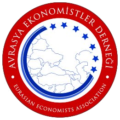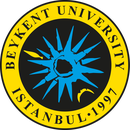
International Congress on Eurasian Economies
26-28 June 2024 – Bishkek, KYRGYZSTAN
Paper properties
Paper ID : 2885
Status : Paper submitted to journal
Language : English
Topic : International Trade and Globalization
Presenter: Dr. Heiko Fritz
Session : 1A Plenary Session
Opportunities and Challenges of Geographical Indications in Central Asia
Opportunities and Challenges of Geographical Indications in Central Asia
- Dr. Heiko Fritz (Linnaeus University Växjö, Sweden)
Abstract
Defined as ‘a sign used on products that have a specific geographical origin and possess qualities or a reputation that are due to that origin’ (WIPO 2021: 6), geographical indications (GIs) have become potentially beneficial trademarks for domestic and international trade in agricultural products. Among the benefits of GIs are: improved consumer information; higher incomes for farmers and food processors; sustainable regional development; conservation of traditional production methods and cultural heritage; and the accumulation of social capital. However, in developing countries highly asymmetric power relations among actors across the value chain, weak institutions and poor governance can be obstacles to reaping the benefits of the GI in the region. While a GI law has been effective in Tajikistan since 2007, Kazakhstan, Kyrgyzstan and Uzbekistan adopted GI laws between 2021 and 2023. The aim of this paper is to assess the potential and the risks of GIs in Central Asia (CA). First, the paper provides and overview the legal and institutional environment for GIs in CA. Second, the paper critically reviews activities of international organisations and actors in development cooperation to promote GI initiatives in the region. Third, the paper discusses selected aspects specific to GI initiatives in Central Asia including the implications of institutional legacies from the Soviet period; colonial borders and unresolved border disputes between independent states; and nomad circular migration that may involve challenges for the regional definition of an origin product. The paper draws on information collected from the academic literature, policy documents and in expert interviews.
JEL codes: O13, Q17, R11



